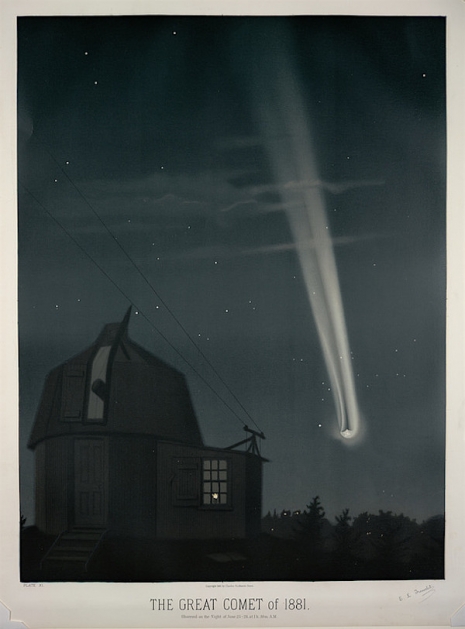
The Great Comet of 1881.
Étienne Léopold Trouvelot was a French artist and astronomer who produced some 7,000 illustrations based on his astronomical observations during his lifetime.
Originally from Aisne, France, Trouvelot fled with his family to America after a coup d’état by Louis Napoleon in 1852. They settled in Medford, Massachusetts, where Trouvelot supported his family as an astronomer and artist. He produced detailed astronomical drawings. A selection of these illustrations was shown to Joseph Winlock, the director of Harvard College Observatory. Impressed by Trouvelot’s work, Winlock invited the Frenchman to join the Observatory staff in 1872. Trouvelot was also invited to spend a year working with U. S. Naval Observatory’s 26-inch refractor.
Trouvelot wrote some fifty scientific papers and is credited with discovering “veiled spots” on the Sun in 1875. He was elected a Fellow of the American Academy of Arts and Sciences in 1877
In 1881, fifteen of his famed pastel illustrations were collected together and published as The Trouvelot Astronomical Drawings.
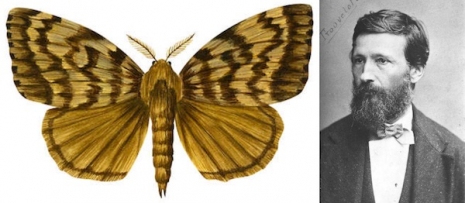
Trouvelot introduced the Gypsy Moth to America.
Apart from his fine scientific work, Trouvelot is now remembered for his meddling as an amateur entomologist. In 1860, he accidentally introduced the Gypsy Moth to America. Trouvelot brought some Gypsy Moth egg masses out of Europe to his home in Medford. He had some strange idea of helping the declining number of silk-producing moths in the States. How he intended to do this is not quite clear. Unfortunately, some moths escaped. Trouvelot notified local authorities to the possible danger but nothing was done. Within a few years, colonies of the Gypsy Moth were causing havoc across large areas of the east coast. Attempts to eradicate this invasive pest failed. Today the Gypsy Moth costs over $800 million in damages every year.
Some of Trouvelot’s drawings are available to buy as posters—details here.
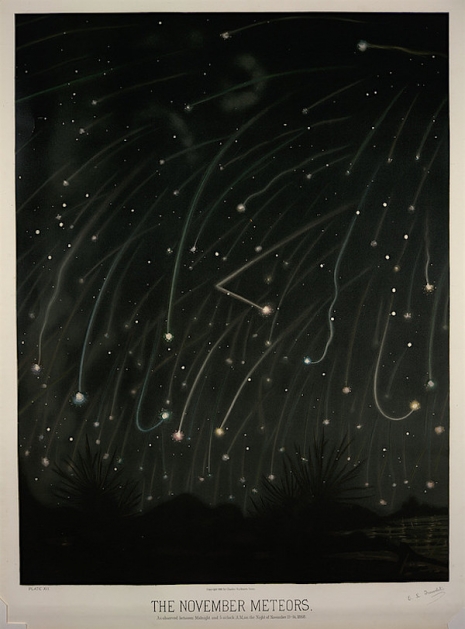
The November Meteors, 1868.
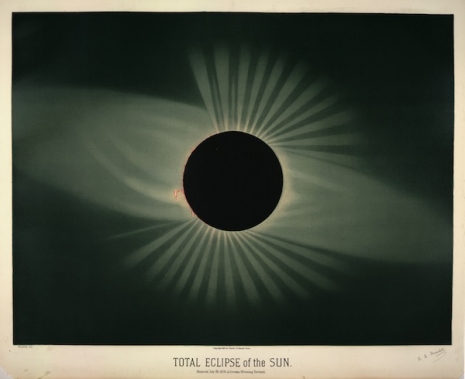
Total Eclipse of the Sun, July 29th 1878.
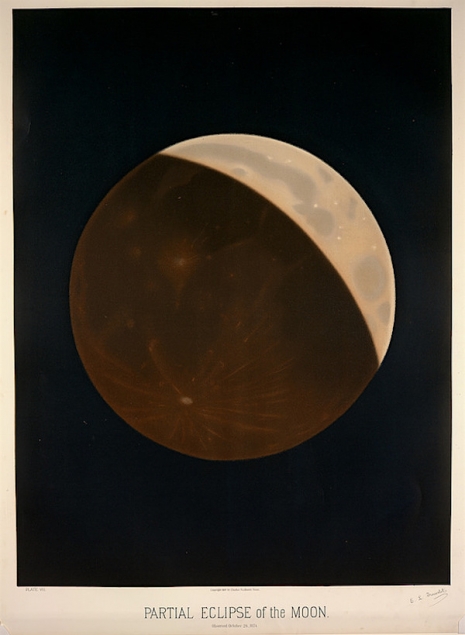
Partial Eclipse of the Moon.
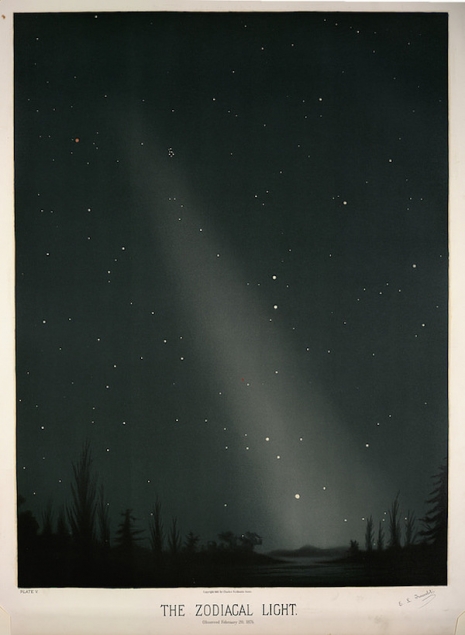
The Zodiacal Light.
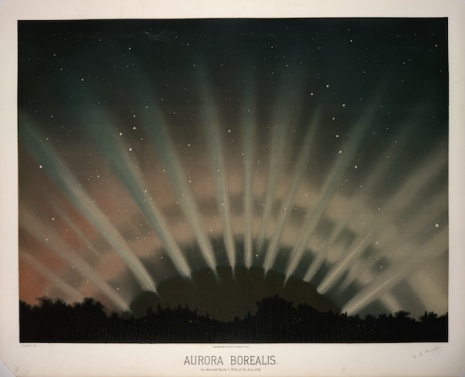
Aurora Borealis, 1872.
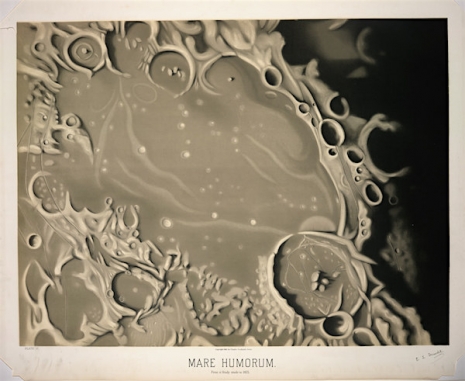
Moon: Mare Humorum, 1875.
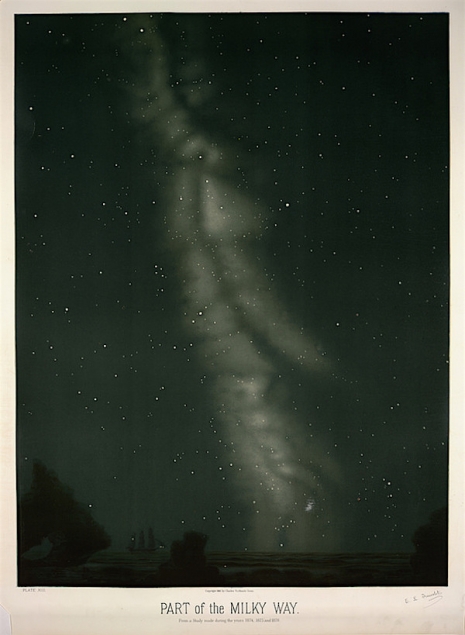
Part of the Mily Way.
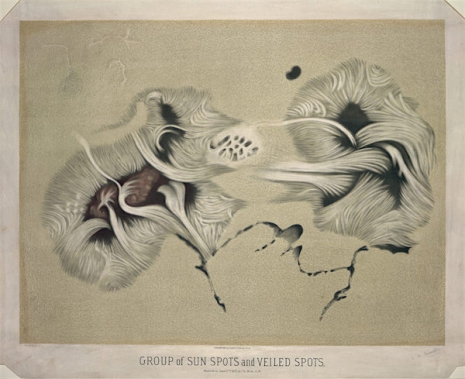
Group of Sun Spots and Veiled Spots.
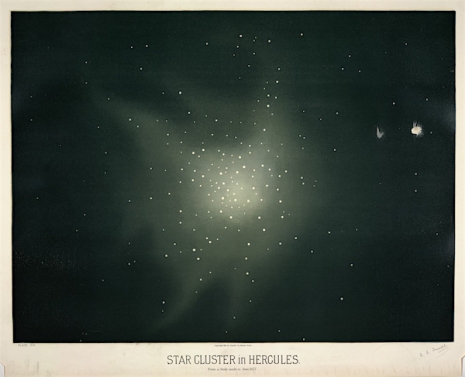
Star Clusters in Hercules.
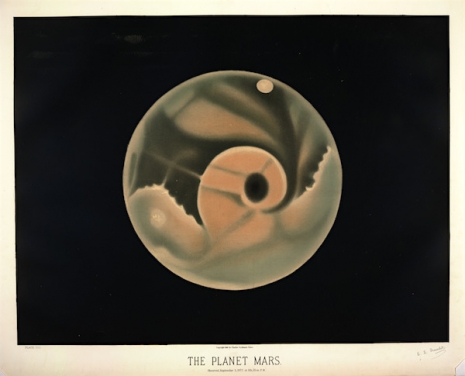
The Planet Mars, 1877.
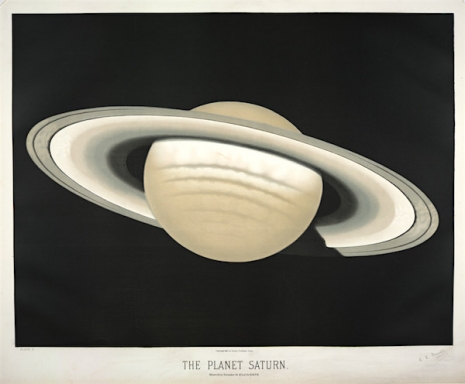
The Planet Saturn, 1874.
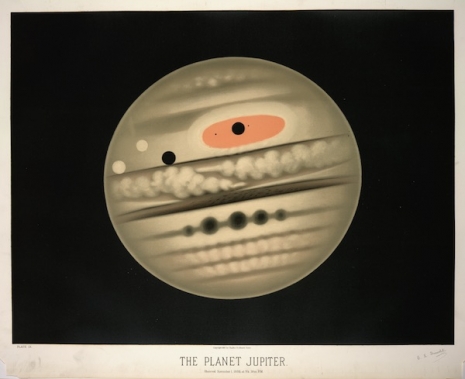
The Planet Jupiter.
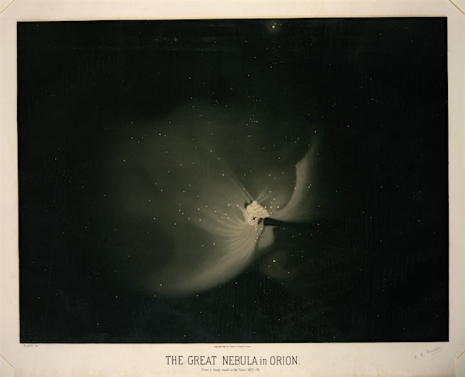
The Great Nebula in Orion, 1875.
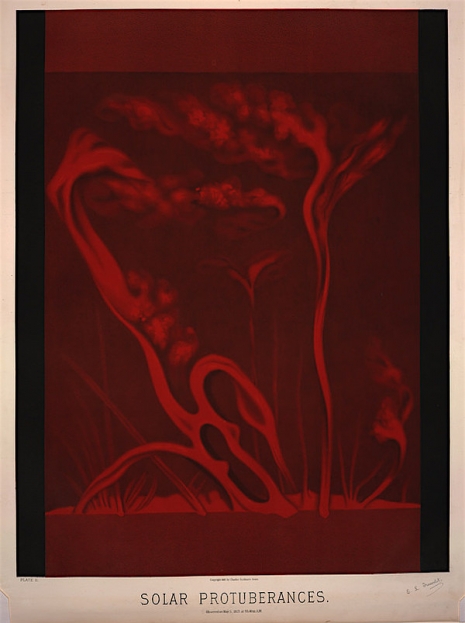
Solar Protuberances.
Via Public Domain Review.